Mi’raj News Agency (MINA) reporter team held an exclusive interview with Mohammad Wahid Supriyadi, who had just ended his duties as Ambassador Extraordinary and Plenipotentiary of the Republic of Indonesia (Ambassador LBBP RI) to the Russian Federation and the Republic of Belarus.
MINA team consists of Editor-in-Chief Ismet Rauf, Senior Editor Widi Kusnadi, Head of Coverage Rana Setiawan, Arab Editor-in-Chief Rifa Berliana Arifin, and Chief Editor of English Sajadi.
Ambassador Mohamad Wahid Supriyadi (61) started his term as Ambassador in the Russian Federation and the Republic of Belarus from April 2016 until the end of his assignment in June 2020. As a career diplomat, he previously served in Australia, the United Arab Emirates, and others.
In an interview in Jakarta on Saturday, September 5, Ambassador Wahid, among others, revealed the great opportunities for economic cooperation between Indonesia and Russia through cultural diplomacy. He also explained the close relationship between the Russian and Indonesian Muslim community.
Also Read: Strengthening Bridges of Friendship and Cooperation between Indonesia and African Countries
Ambassador Wahid said Russia have the same foreign policy as Indonesia in responding to the Palestinian-Israeli conflict by supporting the principle of a two-state solution.
As the initiator of many events aimed at expanding relations between Indonesia and Russia, including four large-scale Festival Indonesia and business forums in Russia.
Festival Indonesia is awarded the Indonesian World Record Museum (MURI) for its four consecutive events. Ambassador Wahid also received a Primaduta Award in the Potential Export Market category at the Indonesian Trade Expo at the Indonesia Convention Exhibition – ICE BSD City, Tangerang on September 16, 2019.
Towards the end of Ambassador Wahid’s duties in Russia at the end of July 2020, he was awarded the Medal of Muslims of Russia “For Services” from the Russian Mufti Council, presented directly by the Deputy Chairman of the Russian Mufti Council, Rushan Abbyasov, at the Office of the Russian Mufti Council in Moscow.
The award was given for Ambassador Wahid’s contribution during his tenure in Russia in developing and deepening cultural and religious relations between the Russian and Indonesian nations.
He is the author of many articles on international relations in the newspapers The Herald Sun, The Age, Image Indonesia, Kompas Daily, Suara Pembaruan Daily, and International Life magazine, including the Mi’raj News Agency.
The following is an excerpt from the full interview:
MINA: What are your impressions after ending duties as Ambassador Extraordinary and Plenipotentiary of the Republic of Indonesia to the Russian Federation and concurrently the Republic of Belarus?
Also Read: Ambassador: Climate Change is the Main Cause of Floods in Pakistan
Ambassador Wahid: My first impression, I once read a book entitled “Russia: A 1000-Year Chronicle of the Wild East” by BBC journalist Martin Sixsmith tells that Russian history is dominated by authoritarian heads of state, so if the leaders are getting weak, devastated the country like Mikhail Sergeyevich Gorbachyov period 1985.
I imagine the name Gorbachyov smells good all over the place, but it turns out he is not, in fact he is thought to be responsible for the split of the Soviet Union. The point is they need a strong leader, that’s why Putin, although currently downgrading, he is still the highest (59%) for a democracy.
Then one thing I learned is that Russians are very happy with culture and there are even many artists appearing.
On the second day I started my assignment there, I left the guesthouse, I saw many people queuing to enter a building. I asked the man what he was doing, it turned out that he was waiting in line at a museum, even they took their children. A week later I returned there, and it turned out that the museum is a painting. So, it turns out that Russians learn history by coming directly to museums.
That’s where I designed an Indonesian Festival. Not only Indonesian arts and culture were presented at the event, but also trade, investment, as well as interactions between individuals. From the first event (2016) to the fourth (2019) the visitors always increase from around 68 thousand, 91 thousand, 137 thousand and finally 117 thousand. There was indeed a recent decline, this was due to the heavy rain on the second day and the Moscow internet was blacked out due to the big demonstration in the Kremlin. The festival has become an icon and has been named by the Moscow Mayor’s office as the biggest festival organized by foreign embassies.
So my approach is through culture, because in that culture there is economic value. Everything at the booth was sold out, even cultural performances such as puppets and dance were in high demand by Russians. Because of that success I founded a studio filled with Russians, they don’t even charge for it.
Then during his tenure as head of representative in Melbourne Australia and ambassador to the United Arab Emirates and Russia. I just felt like being a real ambassador in Russia. I felt the treatment and welcome he received on visits to various regions of Russia was extraordinary.
During that time I made a visit to Ufa (1,339.4 km from Moscow), the capital and largest city of the Republic of Bashkortostan. The local protocol officer conveyed to the staff of the Indonesian Embassy (KBRI) who accompanied me to provide a sedan, while the staff was provided with a minibus. Since I am used to being casual, I asked the staff for one car only.
Also Read: AMBASSADOR TALKS/Russian Ambassador: Attack on Ukraine Tough Choice to Make
However, it could not be fulfilled by the protocol officer on the grounds that it was not in accordance with the applicable protocol. When I opened the door of the Mercedes S600 sedan, I realized that it was a bulletproof car, the same as the one used by President Joko Widodo in Indonesia. So, they really value me as the country’s representative.
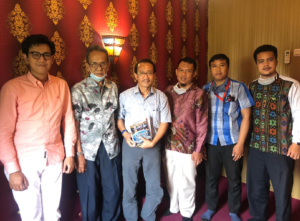 P
P
Dubes Mohamad Wahid Supriyadi (three from left) together with MINA leaders (Photo: Doc. MINA)
MINA: What are the opportunities to improve bilateral relations between Indonesia and Russia?
Also Read: Palestinian Administrative Detainees Boycott Occupation Courts for 40th Consecutive Day
Ambassador Wahid: The relations between the two countries are currently heading to a higher level, namely in the form of a Strategic Partnership.
The two countries have a lot of potential and opportunities for cooperation in various fields, including economy, trade, investment, energy, tourism, science and technology, education, socio-culture, security, and military engineering.
Russia as a potential market for Indonesian products, such as palm oil, fish products, coffee, garments, while Russia offers wheat and high-tech products to Indonesia.
These cooperation can complement each other. Based on data from the Indonesian Ministry of Trade, the value of trade between Indonesia and Russia in 2018 was US$ 2.55 billion, and in the January-November 2019 period it reached US$ 1.92 billion. This value is actually very small compared to the existing potential.
Also Read: Interview with Pakistani Ambassador to Indonesia: Kashmir Solidarity Day
Russia is the world’s number 12 economic power while Indonesia is number 16.
Indonesia is one of Russia’s investment destinations, such as investing in the construction of an oil refinery worth US$ 16 billion in Tuban.
Based on BKPM RI data, the value of Russian investment in Indonesia in the January-September 2019 period increased 10 times by US$ 17.29 million from US$ 1.7 million in the same period in 2018. This figure is actually far from the actual value considering that most Russian investment into Indonesia through third countries.
The potential for cooperation in both trade and investment between the two countries is deemed not optimal due to geographic, economic, and psychological distances between them.
Also Read: Khaled Meshaal to MINA: Indonesia is at the Forefront of Those Who Support Palestinian Cause
Russia is a member of the G-20 with a nominal GDP of US$ 1.7 trillion (2019) and an average economic growth of around 1.3% in the same year. On the other hand, Indonesia is an emerging market with a nominal GDP of US$ 1.1 trillion and a growth of around 5.2%.
Meanwhile, the bilateral trade between Indonesia and Russia, which is in the range of US$ 2.5-3 billion, is still relatively small when compared to the total bilateral trade between Russia and Vietnam, which reached US$ 6.1 billion (2018).
The majority of Russian imports are in the form of machinery, vehicle equipment, telecommunications equipment. In addition, many other commodities such as industrial chemicals, pharmaceuticals and other natural commodities are also imported from abroad. Many food and beverage products such as fruits, vegetables and processed foods are also imported by Russia.
In 2019, Indonesia became the 4th supplier to ASEAN countries after Vietnam, Malaysia and Thailand.
Also Read: Ambassador: Many Opportunities on Relationship Between Indonesia-UAE
MINA: What are the business opportunities in Russia?
Ambassador Wahid: The Indonesian Embassy in Moscow can be a window for Indonesian entrepreneurs to see business opportunities in Russia. However, seriousness of attitude, readiness to open up and actively seeking business opportunities are the pillars of success in fostering networks and business deals in Russia.
Indonesia’s main export commodities to Russia are oil palm, rubber, processed food products, river mats, and horticultural and fishery products.
These horticultural products include coffee, tea, and tropical fruit which are gaining popularity in Russia.
Also Read: Exclusive Interview with Indonesian Ambassador to Afghanistan
Several sophisticated products such as boats for Russian special forces and Indonesian beauty products have also entered the Russian market. Likewise, finished products that have added value such as instant coffee, food products, instant noodles and so on.
The experience of Indonesian companies or business people in Russia can become best practices for business people who will or have entered the Russian market in order to maximize Indonesian exports to Russia.
Mayora, for example, exported 1,000 containers of their product in 2019 and is expected to increase its sales in the future. Meanwhile, Tanamera Coffee, which participated in the First Coffee Festival in Russia in 2019, immediately met its buyer for the first export of premium coffee of 19.2 tons at the end of the same year.
Indonesia has also become one of the top destinations for Russian tourists.
Festival Indonesia which has become an icon for the integrated promotion of tourism, trade and investment by the Indonesian Embassy in Moscow, gives its own weight to relations and cooperation between the two countries.
The real results of the activities held for 2016-2019 were in addition to the establishment of contacts and business contracts which reached US$ 10.7 million as well as visits by Russian tourists to Indonesia which increased almost 100% from 2016 (80,514) to 2019 (158,943).
MINA: Congratulations for the Medal of Muslims of Russia “For Services” award from the Russian Mufti Council which was given towards the end of your assignment. How is the condition of the ummah and Islamic life in Russia?
Ambassador Wahid: Many parties in Indonesia do not know that Russia is a multi-cultural country consisting of around 120 ethnic groups (they call nationalities) with various languages and cultures. Although the majority are Orthodox Christians, about 14% or about 24 million people are Muslim, perhaps the largest in mainland Europe.
Some states such as Tatarstan, Dagestan, Chechnya and Bashkortostan are predominantly Muslim. Since the collapse of the Soviet Union, some 8,000 mosques have been built, making Islam the fastest growing religion in Russia.
There is an interesting story. In 988, Prince Vladimir, also known as Grand Prince of Kiev and All Russia, prior to defining Orthodox Christianity as the state religion, he had considered Islam and Judaism as a comparison.
Islam then was not accepted because it prohibited drinking alcohol, while Judaism was considered unsuccessful in encouraging Jews to take their homeland. Islam at that time was widely embraced by people in the Volga Bulgars (currently the state of Tatarstan).
Islam itself actually entered Russia about 10 years after the Prophet Muhammad died. In 734, during the Ummayah caliphate, a mosque called the Juma Mosque was established in the old city of Derbent, entering the current Dagestan region. The mosque is still standing strong until now even though it was hit by a great earthquake.
The closeness of the relationship between the Russian Muslim community and Indonesia, especially due to the role of President Soekarno’s visit to Saint Petersburg in 1956 with the re-functioning of the Great Mosque of Saint Petersburg as a place of worship for Muslims.
Not a few delegates and Indonesian citizens visited Moscow who always visited the Moscow Grand Mosque.
The Russian government itself guarantees freedom of worship. This is shown by how during the implementation of Eid al-Fitr or Eid al-Adha, the government allowed the streets around the Great Mosque of Saint Petersburg to be used with protection from local authorities.
We have also introduced a lot of Islam in Russia to Indonesian people, visited mosques during working visits to various regions in Russia, and participated in the inauguration of a number of new mosques.
The Indonesian Islamic Brotherhood Association (HPII) in Moscow is the only Indonesian Muslim community in Russia that coordinates the implementation of the Eid Al-Fitr prayer or Eid al-Adha at the Indonesian Embassy in Moscow.
We also underline the importance of cooperation in the halal or Muslim-friendly tourism sector. The markets because Indonesia is the most populous Muslim country in the world and Russia is the most populous Muslim country in Europe.
Indonesian tourist visits to Russia have also increased, especially on Muslim-friendly tours, this is marked by organizing Umrah plus Russian tour packages. The oldest and historic mosques in Russia are the most frequently visited Muslim tourist destinations.
Indonesia is active in developing cooperation, such as participation in the Kazan Summit and Russia Halal Expo in Kazan, as well as the Moscow Halal Expo. Actually, this year we want to send Indonesian businesses to participate in the Russian halal exhibition, but this event was canceled due to the current Covid-19 pandemic.
We also encourage the Russian Mufti Council to continue to develop cooperation with Indonesia, including with religious organizations, such as the Indonesian Ulema Council (MUI). There is a desire on the part of the Russian Muslim Entrepreneurs Association to explore Halal Certification and Islamic Economics with Indonesia.
MINA: In terms of current multidimensional geopolitics, what is Russia’s position as in the Palestinian issue, does Russia support the concept of two states?
Ambassador Wahid: Of course all countries in the world are affected by the crisis due to the Covid-19 pandemic, regardless of whether the country is a democracy or not. The crises that occur are in the form of an economic crisis and a political crisis as well as the emergence of conflicts between countries, such as what is happening now, namely the tense relations between the United States, China and Russia. Russia itself has many complex problems, both with the two superpowers, as well as within its domestic territory.
Russia, which has now become a federation state, often bridges international political issues such as Syria, Palestine, along with what is being done by Indonesia.
Russia is currently actively participating in maintaining the geopolitical stability of its region, especially since Islam is the second largest religion practiced by Russian society and continues to grow rapidly.
Russia has the same foreign policy as Indonesia in responding to the Palestinian-Israeli conflict by supporting the principle of a two-state solution.
Russia supports Palestine with a two-state solution, besides that it also has the principle of not interfering in the domestic affairs of other countries, see Syria, Russia entered Syria at the request of Syria not on its initiative, in contrast to the United States.
For example, Russia’s role in the Syrian conflict is so intensive in helping the Syrian government from ISIS attacks. If Russia did not enter Syria, Syria could have been attacked by ISIS.
MINA: What is your message and plan after carrying out your duties as the Indonesian Ambassador to Russia and Belarus?
Ambassador Wahid: I am offered to teach, before working at the Ministry of Foreign Affairs I taught, some enjoyed retirement and I plan to write books, but actually wanted to motivate (especially for the younger generation of Indonesia) that even though the villagers like me who live are practically simple has high aspirations finally achieved.
As a child, I often listened to Radio Republik Indonesia (RRI). From the several programs on RRI, Radio Australia (ABC) English broadcasts are the most influential. Even though I didn’t understand the meaning, it was pleasant to hear, then I said my father, and he simply said, if you want to go abroad you have to be able to speak English. This motivated me to learn English. I even sent a letter to Radio Australia and was sent a free English study cassette. Then I started to study a little bit.
Until finally I joined the Ministry of Foreign Affairs and my first placement in Canberra, Australia as the Spokesperson for Information, Social and Cultural Affairs, and I was interviewed by Radio Australia. Imagine that what I was glorifying about now is interviewing me, the world is upside down. And at ABC’s 70th birthday, the only diplomat who was invited was me. (W/R1/P1)
Mi’raj News Agency (MINA)






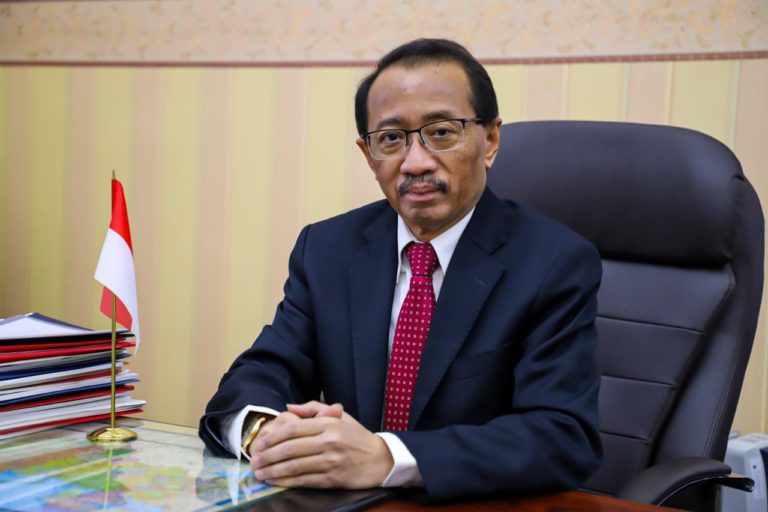

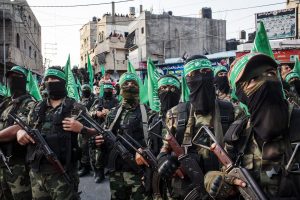


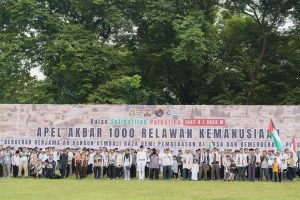
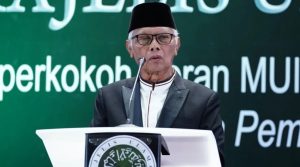
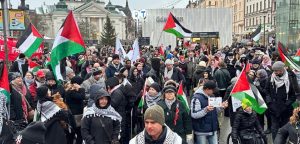
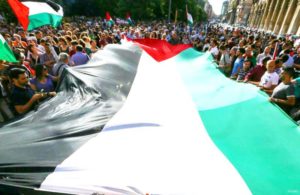
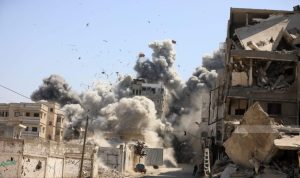
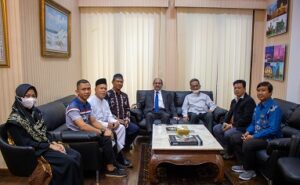
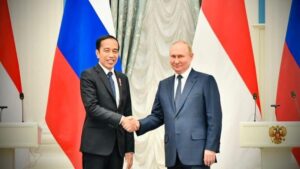
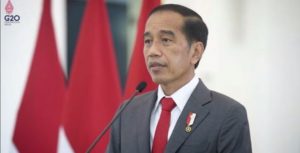
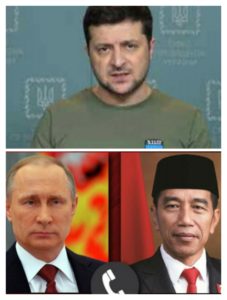
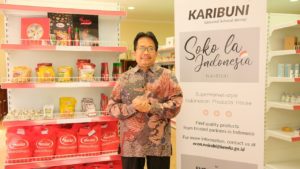
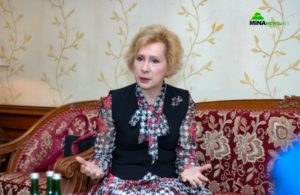
















 Mina Indonesia
Mina Indonesia Mina Arabic
Mina Arabic